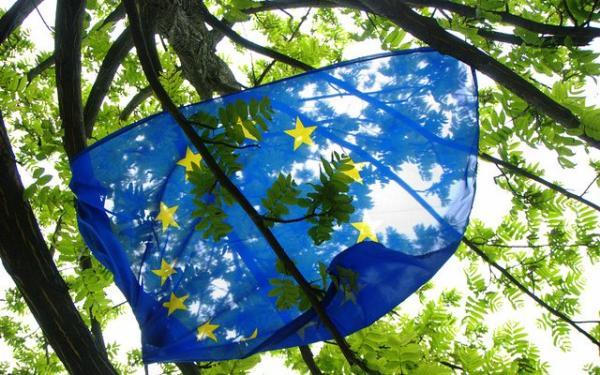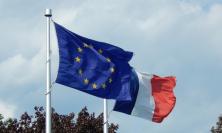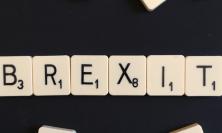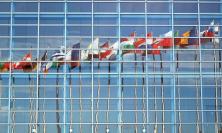On Friday 18 January, Prime Minister David Cameron will give a highly anticipated speech about the United Kingdom’s relationship with the European Union. Edmond Grace SJ explores the popular understandings – and misunderstandings – about how the EU operates, and suggests why the relationship between Britain and Brussels might be considered unique.
The European Union is now in its seventh decade. When the United States was at this point, it was lurching towards a bloody civil war. Europe has already had more than its share of wars – civil and otherwise – but it would be foolish to think that it could get this far without some moment of serious crisis. This strain is most clearly evident in the ongoing troubles of the Euro and in the growing tension in the relationship between Britain and the EU, but the roots lie deeper and pose a deeper challenge to both the EU and Britain.
The big lie
Everywhere government has become complex, sometimes to the point of being cancerous. Elaborate regulation has become increasingly burdensome and, at the same time, the power of nation-states is being undermined by a globalised economy in which wealth is unaccountable to any democratic process. Ideally the EU should be in a position to hold this globalised wealth to account – and be seen to do so – but that is not the case for two reasons. Firstly, its procedures are too cumbersome; the nation states are unwilling to concede the necessary powers. Secondly, and more tellingly, it is not trusted by its citizens, nor can it be trusted until we come to terms with what can be best described as ‘the big Brussels lie.’
The most important thing to remember about this lie is that it is not told in Brussels. It is communicated, slyly, by our national governments. When a politician from any EU country refers to a law as having been made ‘in Europe’ they are happy enough to leave their listeners with the impression that ‘our country’ has had nothing to do with it. This relieves them of the burden of having to take responsibility for any European law. When this is repeated again and again, ordinary citizens are left with the impression that political leaders whom they elect have had no part in the making of laws which they, the electors, must obey. The reality is that every law passed in Brussels is passed by the Council with the agreement of every EU government. (This is not to be confused with the meetings of Heads of State and Government, known as the European Council.)[1]
Governments have a responsibility to keep citizens informed and, when their manner of communication is such as to leave citizens misinformed, they are failing in their responsibility to the truth. This ‘big Brussels lie’ has become an ingrained part of the thinking of governments throughout Europe. ‘What can we do? We’ve no choice.’ ‘This is a European regulation. We have to comply.’ ‘Don’t blame us, blame Brussels.’ It is worth asking how this has come about.
‘Joke of a Parliament’
As much as 70% of our laws are indeed made in Brussels, with three institutions playing different roles – the Commission, the Council and the Parliament. The most transparent of these bodies, and the most derided, is Parliament. We all know what parliaments do: they get themselves elected and they make laws. The European Parliament gets itself elected, but when it comes to making laws, it is quite unlike any other parliament. Normally when a parliament votes to pass a law, the law is passed and people have to obey. Not so with the European Parliament. It has the power to say ‘no’ – to vote down a legislative proposal – but the vote of another institution is required before a final ‘yes’ can be given to the enactment of a law in Europe.
This other institution is the Council, which is made up of ministers representing each of the elected governments of the European Union. The ministers come to Brussels and vote on legislative proposals, just like the Parliament, except that the Council does not work in public. It is not that people do not know about what goes on: on particular issues, each government will have its views and will brief the media on them (that is to say the British government is happy to brief the British media, the German government is happy to brief the German media, the Maltese to brief the Maltese media and so on). No one has to go to Brussels for this – to keep abreast of what is happening it is easy enough to listen in to briefings in Berlin, Prague, Lisbon or London, which will have been prepared primarily for local consumption – and so Brussels as a centre of media interest, in its own right, does not quite figure. All this means that the Council can work away without being noticed, which is exactly what it does.
This has two effects. Firstly, when Parliament debates and votes in public, another vote by another body is required before any decisions can take effect. This can make Parliament look foolish. [2] Parliaments are meant to make laws, but this particular parliament is denied the use of the time-honoured words: ‘be it enacted.’ Secondly, while this public-secret dynamic between the Parliament and the Council may show Parliament in a bad light, it does no harm at all to the standing of the Council, because the Council is simply not seen and what is not seen in the public consciousness is not held to account.
So, the scene is set not only for the big Brussels lie – ‘Don’t blame us, blame Brussels!’ – but for the warped, euro-sceptic version of Europe: ‘In Brussels there is a half-baked joke of a Parliament, which pretends to make decisions which, in reality, are made behind closed doors, where democracy is being undermined by faceless bureaucrats and crooked politicians. With their love of unpronounceable words, peculiar procedures and wheeling and dealing they make things as complicated as possible and they do not even belong to our country.’ This, of course, is another lie. European laws are always voted on by ‘our’ government ministers, whether we be Danes, Italians, Spaniards, Britons or anyone else. (It is possible for the Council to vote by qualified majority, but in practice it is always unanimous.)
The good old nation state
One possible solution to this situation is that the Council be required to meet in public and, strangely enough, the Lisbon Treaty has a provision requiring it to do just that, ‘when it deliberates and votes on a draft legislative act’.[3] There is, of course, a catch; Council itself decides when it is, and when it is not, ‘deliberating.’ The result is that the public sessions envisaged by the treaty have been reduced to a head-nodding formality. This is hardly surprising given that it is not in the interest of the governments to negotiate – and concede – with their citizens looking on. It is possible to open the doors and invite in the general public, but if those inside the doors are not prepared to do what they are doing with the general public looking on, they will retreat behind another.
Meanwhile, the problem remains. The European Parliament, whatever its true powers, is seen to be ineffective. The real decisions are seen to be happening elsewhere. Our elected governments are seen to have no say in the making of laws in Brussels. The big Brussels lie – national politicians disowning their responsibility for the European Union – rolls on.
The damage goes further than an erosion of trust between the Union and its citizens. The EU has become a fall guy for a deeper and more pervasive erosion of trust in democratic government. The sheer complexity of the world in which we live with its globalised networks of transport, trade and technology, means that government itself has had to become highly complex, to the point where the elaborate bureaucracy of the modern state has become a barrier between elected politicians and people. The bewilderment which people experience when faced with this reality is easily channelled into hostility towards new-fangled structures of the European Union and nostalgia towards the good old-fashioned nation state.
The British bulldog syndrome
Most nostalgia is misplaced and this version is no exception. If we all reverted to national separatism we would still all have to face the same complex global realities, except that we would be starting from a multiplicity of starting points which would only add to the confusion – and the paralysis. This nostalgic nationalism is to be found, to a greater or lesser extent, in every member state of the EU, but in most countries there is a powerful political memory holding it in check. This memory does not feature in the British experience and its absence opens up a deep cultural divide from the rest of Europe.
What we now call the European Union was born out of an experience of deep humiliation. Few British citizens would have shared Angela Merkel’s sense of urgency when she said last year that peace depends on the Euro. When she visited Greece in October 2012 and observed the swastikas which were carried in protest on the streets of Athens to greet her arrival, she would have recognised, in this gesture, something more than the witty hyperbole of protest. The swastika once flew in earnest over that same city under a brutal German occupation. No British statesman has ever had cause to describe his or her nation as ‘without hope… despised by all the peoples of the earth.’[4] These words are to be found in the memoirs of Conrad Adenauer whose great achievement was to lead Germany’s recovery from what he called ‘the catastrophe.’ With very few exceptions, every member of the EU has known, within living memory, the uniforms, the voices and the guns of an army of occupation.
The British are fortunate in never having known this kind of humiliation, but this also means that British people find it hard to relate to the resulting sense of vulnerability – and solidarity – which underlies the commitment in other countries to the European project. By contrast there exists what might be fairly called the ‘British bulldog syndrome’ – the bravado of imagined self-reliance. The British are good at remembering their victories, but perhaps not so good at acknowledging their need for allies. This is compounded by an obsession, throughout the English-speaking world, with the Third Reich to the point where German history effectively ends with the death of Hitler. The recovery of Germany after the war goes virtually unacknowledged and the extraordinary reconciliation of warring neighbours on the European continent is explained purely in terms of the benefits of free trade.
Thin layer of ash
So, what does Britain have in common with the rest of Europe? It can sound grandiose to speak of ‘our civilisation,’ but Britain has both shaped the wider traditions of Europe and has been shaped by them. This shared heritage is not confined to art galleries and museums, though they play their part, but is to be seen in the everyday attitudes and dealings of hundreds of millions of people in many different countries. It is easy to take this everyday world of civilised ‘common sense’ – and trust – for granted, but it is surprisingly fragile.
When a volcano erupts and the lava begins to solidify there is a point where it is possible to walk across the accumulating ash. If you stop moving, however, your weight will break open the surface and you will go down into the inferno. Politics and political structures are like a fragile skin of ash over the lava of mistrust and barbarism. These structures are something of the surface – a ‘show,’ a kind of veneer on which civilised living depends.[5] Beneath it there are all kinds of simmering conflicts, which are waiting to break out and we have seen this in our own time in places like the former Yugoslavia and Rwanda.
Such dramatic imagery would be readily accepted by Britain’s greatest political thinker, Thomas Hobbes. He lived during a deeply troubled time in British history and wrote of how he understood life ‘without a common Power’, i.e. without a sovereign government. He wrote of ‘a time of Warre, where every man is enemy to every man… and the life of man, solitary, poore, nasty brutish and short.’[6] These realities may appear to be remote in contemporary Britain, but in every modern city, with its underworld of organised crime and simmering racial and social tensions, Hobbes would recognise his own theories being validated. What is more, these violent underworlds have their own wider networks which are not tidily confined to any nation state. Hobbes was concerned with sovereignty – i.e. with effective government – and increasingly the nation state in isolation is becoming ineffective.
The purpose of political leadership, at its best, is to nurture among flawed human beings that sense of generosity and solidarity, without which we would all be living hand to mouth and ready to kill or be killed. Politicians need to be prepared for the cynical cleverness of humanity at its worst, but if that is all they are adept to deal with, the veneer of civilisation will wear thin, as trust and generosity are undermined and as people become preoccupied with self-interest. People throughout Europe are losing trust in public life and in government. One reason for this, perhaps the most important reason, is that political leaders have lost the knack of inspiring generosity.
A call to generosity
The generation of leaders who founded the European Union did achieve that sense of generous vision. To understand their achievement we need to know what was happening in the months and weeks leading up to the signing on 9 May 1950 of the Schuman Declaration,[7] Europe’s equivalent of the American Declaration of Independence. Allied governments were actively considering a complete de-industrialisation of Germany; an industrial plant was in the process of being removed by the French from the Ruhr district. This was at a time when there were millions of people in Germany homeless and without work. The underlying logic was that the Germans were certain to plunder Europe again, unless they were permanently denied the means of doing so.
The opening words of the Schuman Declaration are in vivid contrast to this fear-driven and hate filled vision: ‘World peace cannot be safeguarded without the making of creative efforts proportionate to the dangers which threaten it.’ The Declaration went on to call for ‘the elimination of the age-old opposition of France and Germany’ and for ‘a solidarity in production’ of coal and steel with a view to making war between them ‘not merely unthinkable, but materially impossible.’ Robert Schuman and Conrad Adenauer and an entire generation of leaders were determined on a course of action which earlier generations would have seen as a betrayal – to subject the sovereignty of their nations to a transnational authority. This was a new form of government founded not on the power of the gun but on the conscious removal of that power.
Throughout the history of Europe many governments have claimed to be Christian but, with the exception of the EU, none has embodied in its very existence the supremely Christian ideals of the reconciliation of enemies and the pursuit of peace. The European Union makes no use of the label ‘Christian,’ and not all of that founding generation were Christian but, for most of them, their Christian faith meant a great deal. The causes for beatification of two of that generation – Robert Schuman himself and former prime minister of Italy, Alceide Da Gaspari – have been promoted.
When people walk across that thin layer of ash which covers the lava, they need to keep moving. Civilisation needs a similar sense of movement; it needs to be able to call on people’s generosity because without that sense of looking beyond our own interest, in the confidence that others will attend to ours, trust is undermined and the fissures of distrust and suspicion, which are always there, will begin to open up. The achievement of Schuman, Adenauer and their generation was to convince a significant body of people that generosity was not an optional extra. In our generation the layer of ash is once again wearing thin, but our political leaders do not seem capable of the vision which we need – a sense of a wider solidarity which transcends nations and which needs political expression. The EU is tired; many in Britain and elsewhere believe that it can be set aside like an old coat. Yet the civilisation which the EU strives to represent – and the need to care for that civilisation – will not go away. Britain cannot reasonably be written out of this project, nor walk away from it.
Edmond Grace SJ is a member of the Organising Team of The Venice Faith and Politics Workshop and author of Democracy and Public Happiness (Institute of Public Administration, 2007).
[1] Title III of the Treaty Of European Union sets out the basic framework of the EU institutions, including The European Parliament (Art. 14), the European Council (Art. 15), the Council (Art. 16) and Commission (Article 17).
[2] In fact, although this system of checks and balances is cumbersome, it also means that neither the Commission nor the Council can act entirely of themselves. It prevents unilateral government by Council and is designed to safeguard both the corporate unity of the EU and the autonomy of the member states.
[3] Title III of the Treaty Of European Union, Article 16.8.
[4] Adenauer Memoirs 1945-53, trans. Beate Ruhm Von Oppen (London 1966), p.38.
[5] The American Jesuit theologian, John Courtney Murray, speaks of ‘civility’ as ‘a thing of the surface’ which ‘dies with the death of dialogue (We Hold These Truths, Catholic Reflections on the American Proposition (London: Sheed & Ward, 1961) pp. 18, 14 respectively.
[6] Thomas Hobbes, Leviathan (Penguin, 1985) pp.185-6.
[7] At less than 1000 words, well worth the read http://europa.eu/about-eu/basic-information/symbols/europe-day/schuman-declaration/index_en.htm






